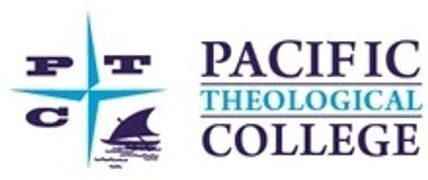Mostyn Manetavua – Anglican Church of Melanesia, Solomon Islands
 It was wonderful to welcome Mr Mostyn Manetavua, an Anglican catechist from Guadacanal, Solomon Islands, to PTC’s graduation this year as PTCEE’s special guest. Former Director, Dr Val interviewed him about his Extension Education experience so far.
It was wonderful to welcome Mr Mostyn Manetavua, an Anglican catechist from Guadacanal, Solomon Islands, to PTC’s graduation this year as PTCEE’s special guest. Former Director, Dr Val interviewed him about his Extension Education experience so far.
V: Mostyn it’s a joy to meet you and congratulations on finishing the final hurdle for the Certificate. Tell me a bit about yourself and your family please?
M: Well, I’m a married man and my wife is Annie. We have four children: Ellison Manebosa, Grace Seripa, Wilfred Lewa and Mason Sukulu.
V: Your children’s indigenous names come after their Christian names?
M: We prefer to use our baptismal names.
V: Where’s your Parish?
M: I’m a Catechist at Christ the King, Komulonga, Diocese of Guadacanal. My father was the Catechist before me and ten households came together to build the Christ the King church. It’s about 2 hours away from Honiara and the Parish is actually called Thathibokoighobu meaning ‘the one in the middle’.
V: What’s your ministry as a Catechist?
M: I say morning and evening prayer, assist the Priest and preach, but most of all it is to make sure our people are reminded of the Word of God every day.
V: You say, ‘reminded of the Word of God…’ So, what is it in your opinion that people need to be reminded of particularly?
M: We need to remind them not to do things that spoil themselves: using marijuana, smoking, mixing home brew…
V: …but some people say that’s just what the missionaries imposed: making things that would have been OK in the community forbidden and that people have been indoctrinated in an unhelpful way…
M: …oh but I have seen things: these things that destroy the brain and destroy families. Houses have been burnt down because of these things, and what we call abuse takes place too much. It is necessary to remind people all the time, ‘Don’t spoil yourselves. Live in a good way – God’s way’. We know what we know.
V: Is it OK to ask how you make ends meet? Are you and the family farming?
M: Yes, we grow cabbage, beans and paw paw among other things. We grow crops for our food. Sometimes I find transport and bring produce to market and if it’s a good day we might gain SBD 500.
V: Now that’s interesting for me to hear because we want PTCEE courses to be affordable, and people’s circumstances differ across the islands. We’re always trying to survey students and make reasonable decisions about cost. What do you think?
M: Well, it’s not easy, but we can manage if we are committed… and if there are some sponsored courses, that really helps us…
V: …yes, we offer every fourth course free, when someone has completed three successfully. So it’s not individual sponsorship, but a helping hand to everyone who’s committed.
M: Yes, if we are committed God helps us. That is true.
V: Mostyn, I also would love to ask you to speak – from your heart – about whether PTCEE courses are really of practical use to you as a Catechist in the rural Solomon Islands.
M: Well, what I can say is that before doing PTCEE I didn’t know how to talk to people in the right way about the faith and I didn’t have confidence to preach. The courses have really helped to give me that confidence in the community. The way I see it, we are always fighting for the Kingdom of God and in some way I can say PTCEE courses help me fight for the Kingdom and build the Kingdom on earth even as we wait for it in heaven.
V: Amen, Brother Mostyn!
M: Yes, Director (laughs). Amen!
